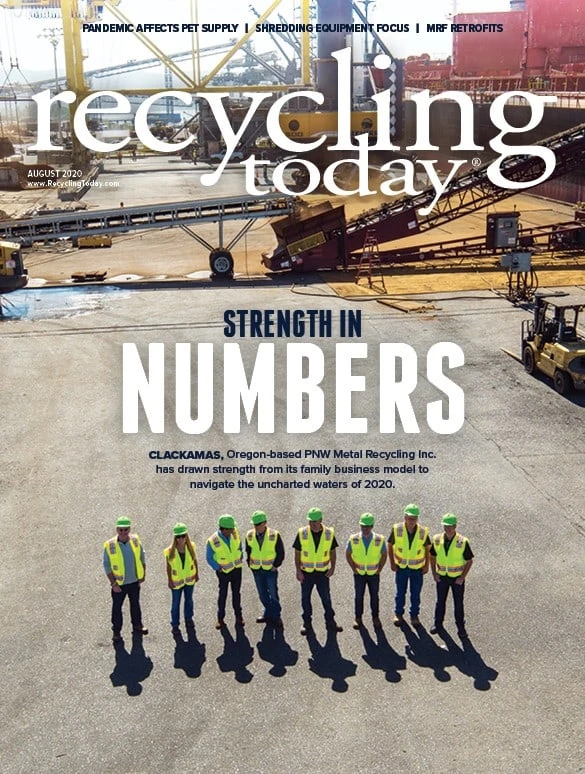A number of efforts focused on plastics recycling were announced in July.
The Foodservice Packaging Institute (FPI), Falls Church, Virginia, has organized a group that will examine polyethylene terephthalate (PET) thermoform packaging recycling, noting that it is conducting a study on the PET thermoform packaging stream and defining the most cost-effective and practical paths for recovery.
In partnership with FPI, the Association of Plastic Recyclers, the National Association for PET Container Resources (NAPCOR), the Northeast Recycling Council, The Recycling Partnership and the Sustainable Packaging Coalition will pool data and resources to gain a more thorough understanding of this issue. Resource Recycling Systems, Ann Arbor, Michigan, is conducting the study, which it expects to complete this fall.
“Each partner has been working to increase recycling of PET thermoforms in different ways, so it’s important to bring all parties together to find a solution,” says Natha Dempsey, FPI president.
Project partner NAPCOR reports that the volume of PET thermoform material recycled in the U.S. surpassed 100 million pounds in 2018. Most of this volume was captured in curbside PET bottle bales and processed with bottles by PET reclaimers that accept them at specified percentages of the bale weight.
Thermoformed products pose challenges for reprocessors when commingled with PET bottles. They sometimes use pressure-sensitive labels that can be difficult to remove in the washing process. They also produce more fines during processing, and their bulk density is different from that of PET bottles, which makes processing these materials together difficult.

The study will further explore this issue and other potential PET thermoform recovery paths.
An initiative led by The Recycling Partnership, Falls Church, Virginia, has targeted polypropylene (PP). The Polypropylene Recycling Coalition, part of The Recycling Partnership’s Pathway to Circularity Initiative, is an industry collaboration seeking to improve PP recovery and recycling and further develop end markets.
“Each partner has been working to increase recycling of PET thermoforms in different ways, so it’s important to bring all parties together to find a solution.” – Natha Dempsey, president of the Foodservice Packaging Institute
Through the coalition, The Recycling Partnership says material recovery facilities (MRFs) can apply for financial grants to enable improved sorting of PP. MRF operators interested in applying for a grant can do so at https://recyclingpartnership.org/polypropylene-coalition.
Additionally, Closed Loop Partners, New York, and its Center for the Circular Economy are launching the Advanced Recycling Innovator Program (ARIP) as a part of its broader Advancing Circular Systems for Plastics Initiative. Through ARIP, Closed Loop Partners and its partners are working to analyze the environmental and human health impacts of advanced recycling processes and to identify investment opportunities along the supply chain.
Nine technology firms are involved in ARIP: APK AG, Brightmark, Carbios, Enerkem, gr3n, GreenMantra, Jeplan, Plastic Energy and PureCycle Technologies. They each use one of three advanced recycling processes: decomposition, conversion or purification.

Explore the August 2020 Issue
Check out more from this issue and find your next story to read.
Latest from Recycling Today
- ReMA urges open intra-North American scrap trade
- Axium awarded by regional organization
- China to introduce steel export quotas
- Thyssenkrupp idles capacity in Europe
- Phoenix Technologies closes Ohio rPET facility
- EPA selects 2 governments in Pennsylvania to receive recycling, waste grants
- NWRA Florida Chapter announces 2025 Legislative Champion Awards
- Goldman Sachs Research: Copper prices to decline in 2026





